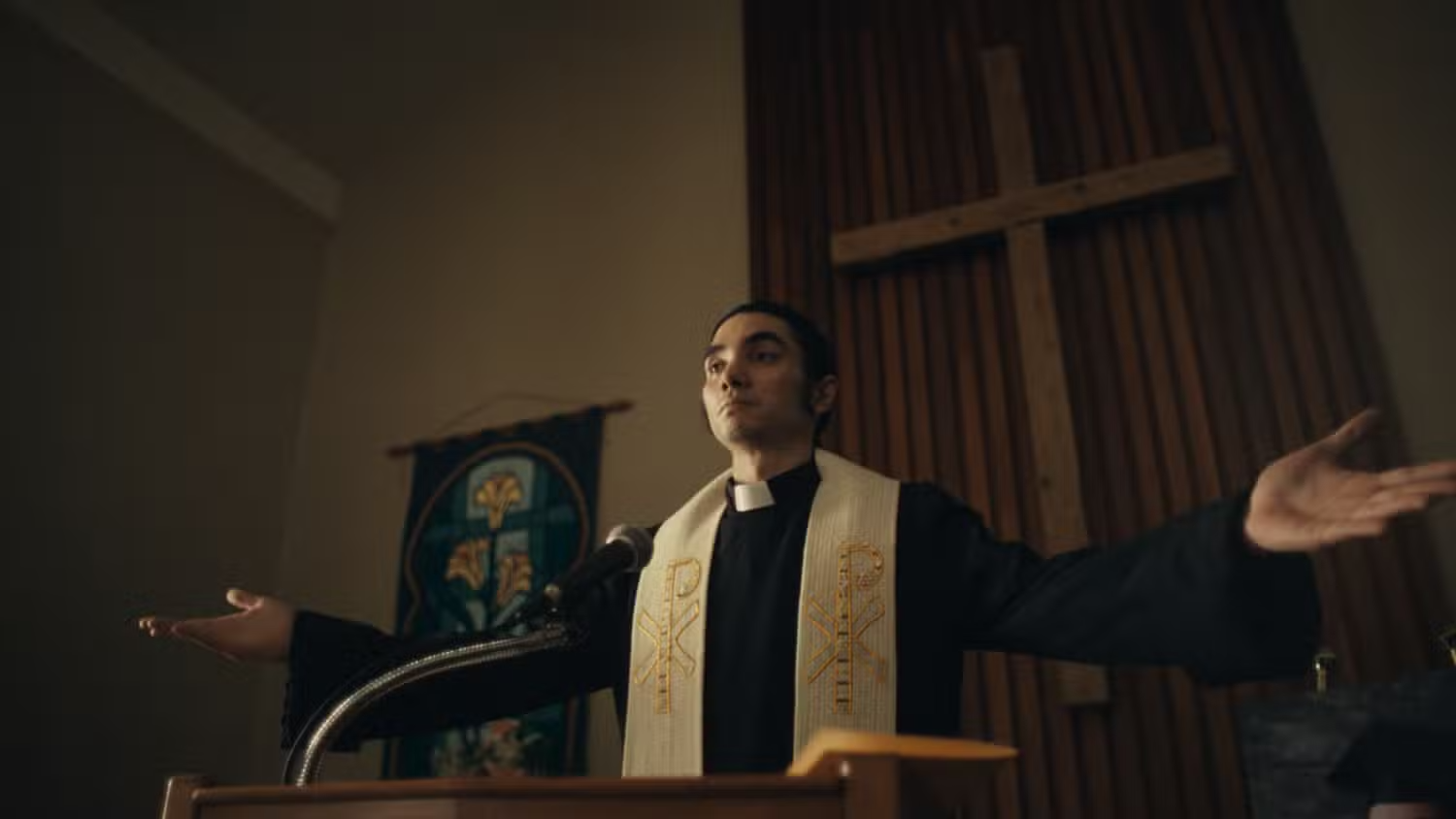The Monkey: Strange and Unpredictable Horror Film
A cursed toy monkey brings chaos and death as two brothers struggle with trauma, fate, and a past that refuses to stay buried.
The Monkey: Strange and Unpredictable Horror Film
by Liudmyla Baganova
A new horror film based on Stephen King's work has arrived, and it is anything but conventional. The Monkey, directed by Osgood Perkins, transforms the chilling short story into a bizarre blend of horror, dark comedy, and family trauma. At its core, the film revolves around a cursed toy monkey, an unsettling relic that triggers gruesome deaths. But this adaptation is more than just a supernatural slasher; it weaves in themes of co-dependency, satire, and psychological turmoil, offering an experience that is as unsettling as it is unpredictable.

Twin brothers Bill and Hal, played with impressive depth by 15-year-old Christian Convery, stumble upon the eerie toy monkey while rummaging through their absent father’s belongings. With its wild eyes, sinister grin, and a drum strapped to its chest, the toy springs to life when wound up, raising its arm and tapping out a beat. It is not long before the horror unfolds, starting with a brutal accident that sees their nanny decapitated by a flying butcher’s knife. Coincidence or fate?

Their mother, portrayed by Tatiana Maslany, takes a nihilistic approach, urging them to enjoy life while they can. A surreal funeral turned dance night becomes one of the last moments of happiness before a descent into chaos, bloodshed, and psychological unraveling. Even as they grow older and drift apart, one becoming a reserved intellectual, the other a reckless misfit, the brothers remain haunted by the cursed toy, now embodied in Theo James’s dual performance.
While King’s original short story follows a father discovering the deadly toy from his past, Perkins shifts the focus to a fractured sibling relationship. The film retains the key concept, death follows the monkey, but reinvents the narrative. Gone are the clashing cymbals; now, the monkey ominously beats its drum, heightening the suspense. More significantly, the film explores how trauma latches onto its victims, turning into an obsessive cycle of fear and estrangement.

Unlike King’s tale, where an unseen force compels its characters toward doom, Perkins roots the horror in psychological motivations. Every turn of the monkey’s key ties back to broken relationships and unresolved wounds, making the film a twisted metaphor for toxic dependency. Despite its liberties with the source material, The Monkey arguably captures the essence of King’s storytelling, blurring the line between the mundane and the supernatural, using horror as a lens for human frailty. The film echoes the emotional weight of The Shining's abusive father, Carrie's adolescent cruelty, and Doctor Sleep's existential dread.
Osgood Perkins, best known for Longlegs (2024), is not interested in delivering a straightforward horror flick. The opening scenes, featuring harpoons through intestines and flamethrowers in action, suggest a grindhouse-style gorefest. Yet, the film pivots into a grotesquely poignant family drama, before taking another sharp turn into pitch-black satire. Perkins continuously defies expectations, making it impossible to predict where the story will go next. Some viewers may find this jarring, but the film never lingers in a comfort zone.

A defining trait of Perkins’ previous work is his mastery of atmospheric dread, crafting terror from silence and stillness. The Monkey, however, takes a different approach, ramping up tension with traditional suspense-building techniques and elaborate set pieces reminiscent of Final Destination. It is not about creeping unease, but rather theatrical, almost comedic, moments of terror. The film finds an odd balance between horror and wit, often provoking laughter where one might expect fear.
The biggest gamble in The Monkey is its fusion of horror comedy with heartfelt drama. Unlike typical genre hybrids, which seamlessly blend levity and scares, this film juxtaposes them with a deliberate awkwardness. Theo James delivers a committed performance, but his character’s shifts between neurotic intellectual and unhinged troublemaker sometimes feel at odds with the film’s tone. Yet, perhaps that dissonance is the point, life itself does not fit neatly into one genre.
As the film spirals toward its climax, it increasingly resembles an animated satire. Characters contort into exaggerated versions of themselves, their expressions and mannerisms bordering on cartoonish. Perkins cites The Simpsons as an influence, and one can easily draw comparisons to South Park, with its biting observations and absurdist critique of reality. Like all great comedies, The Monkey forces audiences to confront the world’s chaos with an uneasy chuckle.

Ultimately, The Monkey is a film about unmet expectations, about the futility of trying to rewrite one's fate. It delves into the masks people wear, the roles they adopt to survive, and the dangers of trying to escape one’s own past. And, of course, it is a stark reminder that some toys are better left untouched.

Get weekly updates
*We’ll never share your details.

Join Our Newsletter
Get a weekly selection of curated articles from our editorial team.



.svg)













